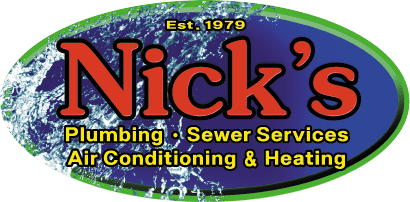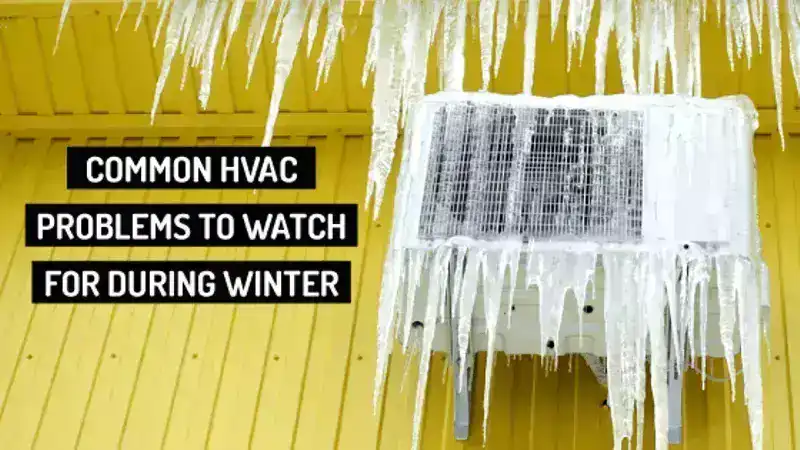Author: Jeff O'Hara
Nobody wants to wake up in a cold house.
While there are certainly some exceptions to that statement, the truth is no one should have to wake up in a cold home. Even with our short and often mild winters in Houston, there will be days we rely on our furnaces to keep our families comfortable. They don’t get used often, so it’s no surprise that many people experience unexpected issues with their furnaces on the first chilly day of the season.
Be prepared for winter by learning about common HVAC problems that can arise and taking the necessary steps to prepare your HVAC system before the next freeze in Houston. After all, you don’t want to find yourself Googling “HVAC not working” or “HVAC freezing up” while you’re wearing a jacket and gloves inside your home.
How Winter Affects your HVAC System and your Furnace
Most furnace failures result from a lack of maintenance that can cause moving parts like fans and blower motors to wear out prematurely. Ignition systems, both gas and electric, can become fouled with dust and other debris that inhibit their ability to run hot enough to generate heat. Wiring in thermostats ages and tends to grow brittle. These flaws can cause system control issues like failing to turn on the furnace or failing to turn off the A/C. Heat pumps are also known to experience issues such as icing in cold temperatures, which can damage the system.
And more often than not, these issues present themselves in the winter. Once temperatures start to drop, problems start to show up. Not following regular maintenance throughout the other seasons can lead to a chilly winter inside your home and your family nagging you to get the furnace looked at.
It’s wise to have any unusual squeaks, squeals, bangs, booms, or pops investigated by a trained HVAC technician. Odd noises in an HVAC system can be generated by several different causes: improper ignition settings, loose ductwork, bad motors, and worn belts.
Common HVAC Problems in Winter
Some HVAC problems are known to pop up when the winter months hit. The best part is most of them have simple preventative measures or easy fixes.
Fan & Blower Motor Issues
If you notice some rooms in your house are colder than others, you could have a fan or blower motor issue.
Every HVAC system uses at least two electric motors. The first one provides the drive for the outdoor fan assembly, and the other operates the indoor blower. As these motors age, there are several possible points of failure that can become an issue.
The most common failure for HVAC motors is worn bearings that create a high-pitched squeal when the motor is running. Fan and blower motors can also have connectivity problems due to lack of maintenance. High heat and humidity can cause insulated wires to expand, contract, and crack during regular use.
If you notice motor issues with your furnace, it’s best to call an HVAC technician. Don’t wait until the temperature inside your home matches your refrigerator.
Ignition Issues
On gas-fired furnaces, you always have either an exposed pilot light burning or an electronic ignition that only operates when the unit is running. Regardless of the power source, ignitions are an essential part of regular maintenance to keep the electronic components and the gas connections clear of debris and dust that can inhibit firing.
Thermostats
Thermostats are complex, and it’s hard to know everything about thermostats. The most important thing to know in winter is your thermostat’s age.The older your thermostat is, the more likely you will have problems with it.
The average lifespan for an HVAC thermostat is about ten years, with their accuracy coming into question around the 7-year mark. While thermostats do not employ any moving parts, their various sensors, switches, and wiring are all susceptible to age-related failures. Temperature sensors fail, causing heating systems to run longer or work harder to keep up with a faulty thermostat demand.
Freezing Pipes
When temperatures drop, the water inside your pipes can freeze which affects your heating system. Freezing temperatures can also lead to emergency repairs, as the frozen water can expand and burst pipes or coils.
Freezing pipes are one of the most common HVAC issues in winter. If you notice your entire HVAC system has stopped working or if you notice water leaks, these issues could both be an indication of frozen pipes.
Heat Pump Issues
Your heat pump keeps your home warm by sending warm air into your home. And in the winter, you might find your heat pump isn’t keeping up. If your thermostat isn’t reaching your desired temperature, you might have a heat pump issue.
Call an HVAC company like Nick’s AC & Heating to check your home’s heat pump if you’re experiencing chilly temperatures indoors. Our technicians will check your HVAC system, make sure your outdoor heat pump unit isn’t frozen or malfunctioning, check the refrigerant levels, and check your thermostat to find the issue.
Short Cycling
Short cycling is when your HVAC system turns on and off too frequently. This can increase your utility bills and cause damage to your HVAC system. Basically, your heating system can’t make up its mind to work or rest.
Short cycling can also be the outcome of a faulty thermostat. An HVAC technician visit can help diagnose your home’s heating problems and repair them. After all, they’re the professionals.
How to Prevent Winter HVAC System Problems
If you want to prevent winter HVAC system problems from arising, there are some steps you can take. And they’re simple, regular maintenance tasks and tune ups. HVAC maintenance is extremely important – especially if you want to be sure your home will stay at a comfortable temperature in the winter.
Run a Test of Your Furnace To Prepare it for the Winter
The only thing worse than overworking a home appliance is under-working it, which allows the device to fall into disrepair through unintentional neglect. You would never expect someone to run a marathon after 8 or 9 months of total inactivity, but each year we expect our furnaces to accomplish that mission when the winter comes. We’re setting them up for failure.
With a little bit of maintenance, your furnace, along with your entire HVAC system, will have a much stronger chance of achieving its 12-15 year expected lifespan.
Instead of firing up your furnace for the first time on the first cold morning of the season, run the heating side of your HVAC system for a few minutes once a month. While performing the “test runs” of your furnace, you should keep an eye, an ear, and nose out for signs of anything unusual.
Look at the pilot light on the furnace itself. The flame should be a steady blue, whereas a yellow or orange flame could be a sign of ventilation problems.
Listen for any unusual sounds coming from your furnace. Squeaking sounds can come from fan and blower motor bearings that are near the end of their life.
Take note of any strange odors floating around the home, specifically any smell of gas, which could indicate a dangerous gas leak. Pay attention to any burning odors. Sure, it’s normal for a furnace to smell a bit “musty” after a long hibernation period, but any lingering odors from the furnace need to be addressed.
Your senses are your superpower when it comes to identifying and preventing common HVAC problems in winter.
Change Your Filters
We say it in every blog about HVAC system maintenance and heating repair: The most important thing you can do to protect your HVAC investment is to change the filters regularly.
Just about every symptom of “sick furnace syndrome” can be traced back to neglecting a system’s air filters – especially in winter. These inexpensive fiberglass and cardboard filters need to be replaced at least four times per year or every three months. That’s not just our opinion; it is the recommendation of nearly every HVAC manufacturer operating today. By neglecting your filters throughout the other seasons, you’ll be forced to deal with your dirty filters once winter hits.
Dirty air filters can harm the performance and efficiency of your furnace and air conditioning subsystems. Over time, filters build up a mixture of dust, dirt, insects, pollen, mildew, mold, smoke, and anything else floating around in the air, causing your HVAC system to work harder to cool or heat the home.
Check Your Insulation
If your home isn’t properly insulated, you’ll feel the cold as soon as it hits Houston. Checking your insulation ahead of time will prevent winter HVAC system problems. Your furnace and HVAC system can work hard to pump out warm air, but if your insulation isn’t adequate all the heat will escape through your home’s walls.
Have One or All of These Symptoms?
If you’re having one or all of the symptoms of an HVAC system problem, don’t hesitate to have it looked at – and don’t wait until the cold comes to Houston. Do your best to find solutions to common central heating problems, but if you can’t DIY it, call Nick’s.
Nick’s Air Conditioning technicians are licensed, experienced, and thoroughly background-checked before they ever put on our uniform. We operate over twenty fully-stocked HVAC and plumbing trucks, all equipped with the tools and parts necessary to maintain or repair any system. Nick’s has been in business from the same location in Houston Heights since 1979, and we look forward to providing you with the same five-star service we’re best known for.
If you’re looking for professional heating and furnace maintenance services, don’t wait. Call us today, we’re on the way. And if you’re not one for maintenance or upkeep, our VIP HVAC maintenance plan can ensure your heating systems are ready for use when the cold comes to Houston.


